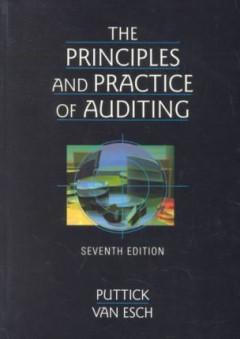Question
This is a 12 part question Part 1. Complete the Sales Budget given the following: Number of units sold will increase by 20% each month
This is a 12 part question
Part 1. Complete the Sales Budget given the following: Number of units sold will increase by 20% each month over the previous month.
--------------------------------August September October Totals Budgeted Sales Units; 500 Selling Price per unit; $75 $75 $ 75 $75 Total Budgeted Sales; $37,500
2.Complete the Production Budget given the above data and the following: Starting in August the company decided the number of units in its finished goods inventory at each month-end should equal 80% of the next months budgeted sales.
August September October Budgeted Sales Units 500 Next period budgeted sales units Desired ending inventory Total required units Beginning inventory units Units to produce
Part 3. Prepare a cash budget given the following data:
Budgeted sales for: April 25,000 units May 70,000 units June 50,000 units
The selling price is $25 per unit.
April May June Quarter Budgeted sales in units Selling price per unit Total budgeted sales
All sales are on account
60% collected in the month of the sale 40% collected in the month following the sale
In April, the 31 March accounts receivable balance of $45,000 will be collected in April.
Expected Cash Collection: Construct a cash collection schedule for April, May, June and a total for the Quarter.
April May June Quarter A/R 31 March 45,000 45,000 April Sales May Sales June Sales Totals
Part 4. Determine the spending variance using the following data.
Shoo-Shu, Inc. uses the following direct material standard to manufacture king size mattresses: 15 pounds per mattress at $13.50 per pound. Last week, 8,000 pounds of material were purchased and used to make 550 mattresses. The total material cost was $111,360
Actual Quantity Actual Quantity
X x Actual Price Standard Price
Actual Quantity Standard Quantity
X x Standard Price Standard Price
Spending variance =
Part 5. Determine the spending variance using the following data:
Shoo-Shu, Inc. uses the following direct labor standard for its mattresses: 3.75 standard hours per mattress at $22.50 per hour. Last month, employees actually worked 2,100 hours for a total labor cost of $46,415 to make 550 mattresses.
Actual Quantity Actual Quantity
X x Actual Rate Standard Rate
Actual Quantity Standard Quantity
X x Standard Price Standard Price
Spending variance =
Part 6. Computer the variable MOH rate and efficiency variances given the following information:
Top Shoe Mfg. uses direct labor hours as the allocation base in its predetermined OH rate. The company has the following standard variable MOH cost for each left-handed shoe:
3.7 standard labor hours per left-handed shoe at $9.25 per labor hour.
Last month, employees actually worked 19,000 labor hours to make 5,000 left-handed shoes. (Round off your answers to 2 decimal places). Variable MOH was actually $170,000.
Actual Hours Actual Hours Actual Hours Standard Hours X X X X Actual Rate Standard Rate Standard Rate Standard Rate
Part 7. Calculate the ROI for Yr. 2 given the following data: Calculate your answer to five decimal points.
Income Operating Assets Sales Yr. 1 $13,500 $109,009 $122,093 Yr. 2 $19,332 $134,231 $155,301
Part 8. Calculate the Turnover for Yr. 2 given the following data: Calculate your answer to five decimal points.
Income Operating Assets Sales Yr. 1 $13,500 $109,009 $122,093 Yr. 2 $19,332 $134,231 $155,301
Part 9. Calculate the Profit Margin for Yr. 2 given the following data: Calculate your answer to five decimal points.
Income Operating Assets Sales Yr. 1 $13,500 $109,009 $122,093 Yr. 2 $19,332 $134,231 $155,301
Part 10. Calculate ROI if Sales = $105,000, Operating Expenses = $87,000 and Investment Turnover = 2.11
Part 11. Big Money, Inc. has four departments. The cafeteria serves each of them. The cafeteria cost is allocated to each of the departments based on the number of employees in each department. Total cafeteria cost per month is $17,500. The four departments and the number of employees in each is:
Collections 120 employees Soliciting 200 employees Admin 50 employees Legal 30 employees Total 400 employees
Part 12. Given the following data, calculate the number of days in the Cash Conversion Cycle for Top Dogg Industries.
Accounts Receivable = $1,300,000 Inventory = $1,500,000 Sales = $15,000,000 Cost of Goods Sold = $13,000,000 Accounts Payable = $2,700,000
Step by Step Solution
There are 3 Steps involved in it
Step: 1

Get Instant Access to Expert-Tailored Solutions
See step-by-step solutions with expert insights and AI powered tools for academic success
Step: 2

Step: 3

Ace Your Homework with AI
Get the answers you need in no time with our AI-driven, step-by-step assistance
Get Started


